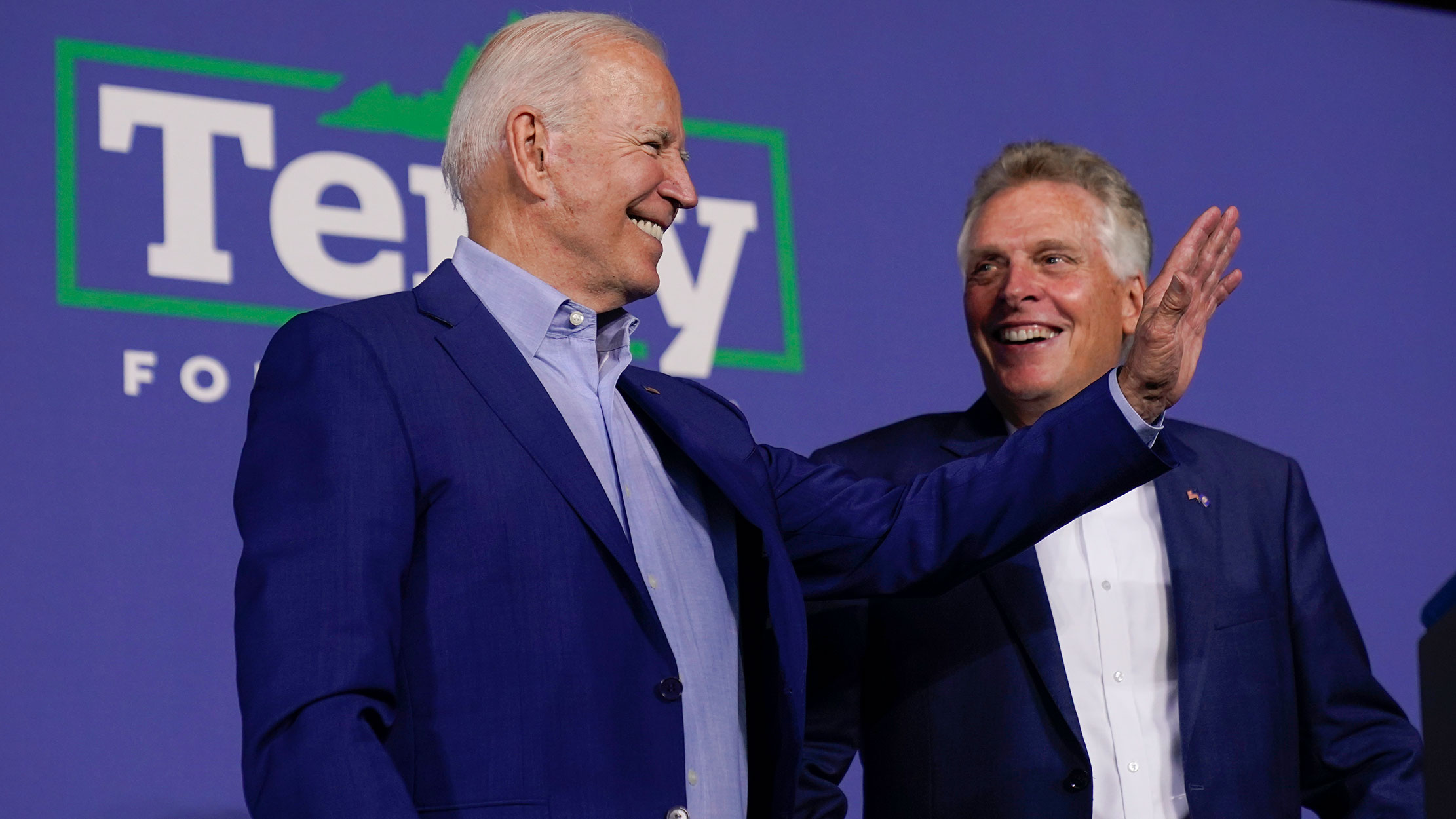In the last four months, American troops withdrew from the longest war in the nation’s history, the unemployment rate fell to pre-pandemic rates, and a massive infrastructure bill was signed into law. All were substantial political accomplishments. Yet President Joe Biden’s approval rating has collapsed. From August to October , the Biden administration has experienced a seven percentage point drop. Democrats also experienced significant losses in recent elections, with the worst being the Virginia gubernatorial race. Biden won Virginia by 10 points a year ago but Republican candidate Glenn Youngkin beat former Democratic Governor Terry McAuliffe by two points. It was a tight race heavily influenced by critical race theory.
Education became a critical issue in Virginia’s election. Youngkin firmly rejected and campaigned against teaching critical race theory in schools. In his stump speech, Youngkin vowed to “ban critical race theory on day one.” McAuliffe maintained that “[he doesn’t] think parents should be telling schools what they should teach,” in an attempt to neither support nor oppose critical race theory. He tried to remain neutral and lost.
Youngkin realized that critical race theory disturbed many Virginians and centered the issue in his platform. McAuliffe reacted to Youngkin’s attachment to critical race theory and the election transformed into a culture war rather than a policy contest.
Youngkin used the shift from policy to culture to his advantage with one critical demographic: suburban voters, especially suburban women. In one television ad, Briana Howard, a mother and frequent Democratic voter, expressed that she was voting for Youngkin because she felt that her “daughter’s safety and education seemed like an afterthought.” Youngkin’s focus on issues that both affect suburban voters and are relatively easy for him to address, like banning critical race theory in schools, paid off. Even though critical race theory is not commonly taught in Virginia schools, Youngkin positioned himself as someone able to ensure it never entered a classroom. McAuliffe’s neutral stance on education, especially critical race theory, may have in turn hurt his support with white women. Exit polls in Virginia demonstrate that 57 percent of white women voted for Youngkin. It was a 13 point swing towards the Republican Party among women, a significant percentage with a consequential impact on the election results.
McAuliffe’s disappointing performance in Virginia and Biden’s declining approval rating are worrisome for Democrats. McAuliffe’s victory in Virginia was supposed to aid Democrats by countering Biden’s weak support from the public, but it didn’t. Instead, it suggests to Democrats that their political strategy is not working.
While McAuliffe tried to remain neutral on critical race theory to not alienate moderate Democrats and Republicans, in the White House, Biden has been aggressively pushing a progressive agenda to fulfill his campaign promises. Thus, the Democrats’ approach to local concerns is not matching their national strategy. McAucliffe was trying to attract moderate Democrats while Biden has been primarily engaging progressive Democrats, two electorates often at odds. The party’s overall left-leaning trend had an impact on Virginia’s election, as Abigail Spanberger, a moderate Democrat from Virginia, suggested: “Nobody elected [Biden] to be F.D.R, they elected him to be normal and stop the chaos.” There is a real discrepancy in the Democratic Party that has contributed to alarming results.
McAuliffe and the Democrats thought the election was settled because Biden had won Virginia by a wide margin—10 points—yet he lost. Biden is passing far-reaching and lasting legislation, but the public is not supportive of his leadership. Though McAuliffe and Biden took different approaches to appealing to progressive Democrats, neither politician’s strategy has been successful. This underscores the uncertainty and confusion surrounding the future of the Democratic Party. It is unclear whether the party is for moderates or progressives. McAuliffe’s loss demonstrates to the Democrats how low support from the public for parts of their national agenda might impact local elections and lead to disappointing outcomes. American voters, on average, are disappointed by the Democratic Party and conveyed their frustrations at the ballot box in Virgina.
If the party chooses to continue on their left-leaning trend they risk losing necessary votes. Biden has seen significant losses in support from independents, who helped him to victory just a year ago. Likewise, if the party ignores progressive voices and caves to moderates as in the case of McAuliffe, then they also risk losing votes. The Democrats need to develop a political strategy and policy initiatives that unite two, often opposing, constituencies if they want to remain in office. The Democrats have been engaging in unsuccessful culture wars with the Republicans for too long. The party cannot ignore social change, but it must also focus on creating a strong economy. A twofold approach of catering to the common voter by addressing inflation and pushing for greater family leave would help bridge the gap between the Democrats’ moderate and progressive wings.
Biden’s polling numbers and McAuliffe’s defeat have demonstrated that catering to just one or another electorate is not a popular or victorious strategy. The party is currently caught in the middle between these opposing forces, and recent voter opinion foreshadows dreadful results for Democrats in the upcoming midterm elections.
The Democrats ran on a message of unity in 2020. One of Biden’s slogans was “Unite for a Better America,” yet his legislative actions have leaned towards a specific electorate more than the general voter. The Democratic Party is forgetting who elected them and why. If they don’t remember that soon, then Virginia could become the expectation instead of a surprise.
